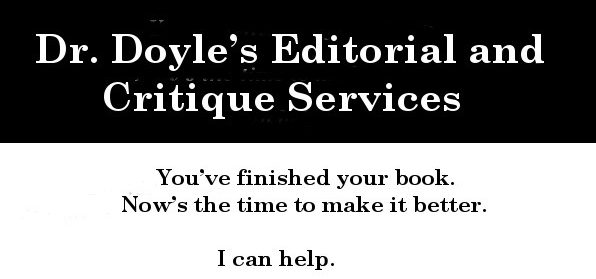If you’re a long-form writer with a number of stories set in the same fictional milieu, the odds are that at some point or other you’re going to find yourself writing a prequel. (I don’t think the term counts as a neologism any longer, since at least two respected on-line dictionaries vouch for its existence since at least 1972, or possibly as early as 1958.†) Writing primarily short stories isn’t going to get you out from under this particular Sword of Damocles, either, since at some point you may be inspired — or be offered money, which often comes to the same thing — to expand a short story or series of short stories into a novel, or to write an origin story for one of your characters.
At which point you will find yourself engaged in one of the more masochistic pleasures of the writing life, that of retrofitting a backstory.
The big challenge in writing a prequel lies in the necessity of keeping your plot consistent with what’s been said or implied in the existing material, while at the same time writing a story that’s interesting on its own — the latter being, in my opinion, the more important job of the two. Not surprisingly (this is a blog about writing, after all) I have some thoughts about how to go about it.
Thought one: Writing a prequel is, in some ways, like taking off on a road trip with a certain number of must-hit way-points that you can’t ignore, even if your start point and your final destination are left to your discretion. When my co-author and I wrote The Gathering Flame, our prequel novel in the Mageworlds universe, there were really only a handful of such points: a couple of political agreements, two or three military engagements and a couple of daring space exploits, and the birth dates of a couple of children whose relative ages and birth order had been set in the original trilogy. (And it was the kids who gave me the most trouble, believe it or not. The family setup in the trilogy had been established for effective storytelling in the context of those books; for the prequel, I had to go back in time and figure out not just how but why things had worked out that way, in a fictional milieu where “oops!” was a less-than-believable explanation for such things.)
So when you’re contemplating a prequel, it helps to make a list before you start of what your known past facts and must-hit way-points actually are.
Thought two: Not all of your known past facts and way-points are going to be of equal importance. Some of them, in fact, you may have to jettison or flat-out contradict for the sake of creating an effective story this time around. Yes, if you do that, you will probably get letters from readers pointing out your mistakes. Console yourself, in that case, with the thought that you’ve got readers who are paying close enough attention to what you’re saying that they can catch such things. Or you can point out to them that even in contemporary consensus reality, not everything comes with a completely known and consistent backstory, that “exactly what happened” is something that journalists and historians struggle with every day and don’t always come up with definitive answers, and that the bits and pieces of our lives don’t always match up tidily at the edges.
Or, as one of our own fictional characters said, in the (utterly invented, because we made it — and him — up) epigraph to The Gathering Flame: “What you have to realize, son, is that almost all of the people who were there at the time are dead. And everybody who’s still alive is lying to you about something.”
†That would be the on-line OED citation, which alas I cannot verify without purchasing a subscription.


I’m stuck going back in time for all but one of the spin-offs from my first novel.
I still think “prequel” stinks. What was the matter with “prelude?”
I suspect that the music people already had a stranglehold on the term.
(Also, in my own head at least, “prelude” is like “prologue” — something that goes at the beginning of a particular story as an integral part of it, rather than something that’s written later as a separate work.)
Interesting. I’ve never had any difficulty with applying what strikes you as a strictly musical term, to literature. But then, my musical frame of reference is Wagner, who was his own librettist, and therefore just as much a playwright as a musician. For me, Das Rheingold can stand alone, as well as function as the prelude opera to Der Ring des Nibelungen. Gesamtkunstwerk, you know.